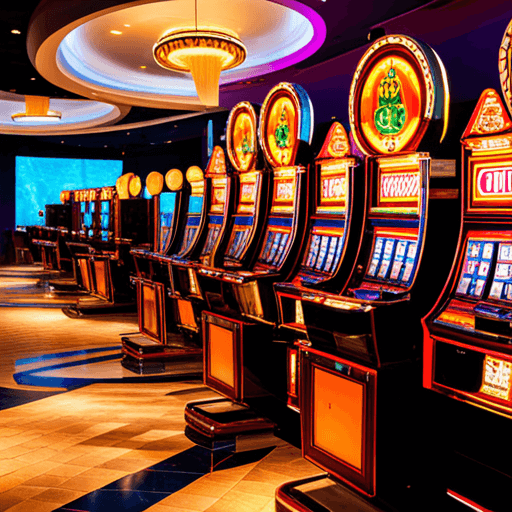
Gambling games have consistently attracted various types of players, delivering not only the excitement of risk but also a tailored experience crafted for different kinds of players. Ranging from strategic players who succeed through strategic thinking to more casual gamers in search of entertainment, casinos recognize the details of their audience and create games that cater to these diverse tastes.
In investigating the realm of gambling games, we encounter a variety of game types that interest all types of players. Poker tables with high stakes attract competitive individuals, while colorful slot machines appeal to those seeking quick rewards. Whether it’s about the allure of winning big or simply savoring the social environment, casinos design their game offerings to ensure that everyone finds a spot where they feel comfortable and engaged. Comprehending how these games are designed for different kinds of players can enhance not only our appreciation of them but also how we approach selecting which games to play.
Grasping Player Types
In the diverse world of gaming games, players can be grouped into distinct kinds based on their motivations and likings. These participant categories range from the casual and community-oriented gamers, who enjoy the enjoyment value and community engagements that gambling provides, to the more analytical and methodical players, who seek to maximize their odds and gains. Comprehending these different player types is essential for casinos to adapt their services and design engaging experiences.
One common type is the group-oriented player, who considers casino games as a form of social interaction and enjoyment rather than a serious gambling activity. These participants often enjoy games that encourage participation and camaraderie, such as poker. Their emphasis is on the experience rather than the result, so dynamic settings and collective moments are what they value the most.
On the opposite end of the range, strategic players are driven by rivalry and the search of expertise. They tend to gravitate toward games that necessitate tactical planning and strategy, such as blackjack, where their abilities can affect the result. This kind often involves with the games on a deeper level, utilizing expertise and approaches to achieve an edge. Grasping these drives allows casinos to create settings and game selections that address to each participant’s distinct choices.
Strategies for Game Design
Casino games are designed with varied player types in mind, utilizing various strategies to draw in and engage them. For casual players, the focus is on simplicity and clarity. Games like slots are frequently aesthetically pleasing with simple mechanics. This enables players to enjoy the experience without a steep learning curve, creating an welcoming atmosphere. The vibrant hues, catchy sounds, and themes create a fun environment where players can quickly get involved and enjoying themselves.
For strategic players who enjoy a more profound level of involvement, games such as Texas Hold’em and blackjack offer depth and strategic elements. These games feature strategy and decision-making, attracting to players who thrive on challenge and want to utilize their cognitive abilities. The design of these games regularly includes intricate rules and mechanics that test players to refine their skills and create strategies over time, creating a rewarding experience for those who appreciate perfecting the game.
Additionally, community-oriented players are catered to through games that highlight engagement and community. This includes live dealer games and multiplayer formats, which cultivate a sense of community among players. The design of these games typically incorporates communication tools and social elements, allowing players to connect and exchange insights. By creating an environment where participation is promoted, casinos can effectively involve social players, making the gaming experience more enjoyable and unforgettable.
Boosting Participant Experience
Casino games have advanced significantly to provide a much more engaging experience for gamers. Software designers focus on immersive images, immersive sound effects, and creative gameplay features that draw gamers into the gaming environment. By leveraging technology, such as virtual reality and augmented reality, gaming establishments ensure that players feel as if they are part of a exciting atmosphere, enhancing in addition to the fun of the games but also the overall experience of being in a gambling venue.
Community engagement is another critical aspect in boosting gamer experience in casino titles. Many options are crafted to facilitate engagement among participants, whether through team play or chat features. trang chủ j7bet This social aspect attracts players who like connecting with others while playing, fostering a community vibe community. In addition, interactive elements can feature ranking systems, competitions, and incentives for collaborative gaming, which attract ambitious participants and encourage them to come back for more.
Lastly, personalization plays a pivotal role in customizing the experience for various player types. Gaming establishments and game developers analyze participant habits and likes to offer personalized game options and rewards. By comprehending the unique preferences of players, casinos can offer customized offers, rewards, and fresh games that satisfy each individual, thus enhancing their overall satisfaction and devotion to the gaming venue.